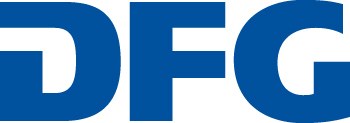Editorial
Welcome to the 12th edition of the e-journal
MAP - Media | Archive | Performance
MAP #12
Expanded Archives. Digital environments, decolonial perspectives, strategies of mapping
The rapid spread and increased availability of digital environments in recent years, and the constant diversification of the concept of the archive and what “archive” can be, along with the media hybridization of our lives as engendered by the experience of the pandemic, is giving rise to ever more conceptual models and concrete practices dealing with the preservation of cultural memory, media forms of storage and new (and old) ways of coordinating and transmitting knowledge. The 12th edition of MAP is dedicated to such “extensions of the archive” and explores the potential held in these new, ambitious, experimental, sometimes provisional, or fragmentary (model) projects.
The opening chapter “Digital Archive Environments” offers a first appraisal of the research project Documenting Digital Art. While reviewing the project, Annet Dekker and Gabriella Giannachi formulate a typology of documentary practices on digital and performance-based artworks in the museum context. This in turn provides a foretaste of the next-but-one edition of MAP, dedicated to documentation strategies and practices (“Doing Documentation”), and due to appear in summer/autumn 2023. Next, Francis Hunger talks to Barbara Büscher about the Training the Archive project, the conditions it requires, its possibilities, and limitations. Training the Archive is a cooperation between Ludwig Forum Aachen, HartwareMedienKunstVerein Dortmund und the Visual Computing Institute of RWTH Aachen University, focusing on visual archives and the question of how to create new contexts for these collections by means of “machine learning”. Marika Kupkova and Monika Szücsová describe a curatorial research project, initiated in the context of pandemic-induced seclusion, that grew into an experimental archive for the TIC Gallery (Brno) and has stimulated reflections on the possibility of understanding exhibition venues as community centres. The nascent Vasulka Kitchen Brno archive, centred around the collection of Steina and Woody Vasulka and held by the Brno House of Arts, was the basis for the performative exhibition Vasulka Live Archiv/video mapping, profiled in this edition by Jana Horáková. Projected on to the façade of the House of Arts in December 2021, this exhibition interwove excerpts of videos from the Vasulka collection with visualizations of analytical approaches generated by artificial neural networks.
Under the heading “Decolonial Perspectives”, the second chapter looks at projects and research concepts that deal with ways of extending conventional designations and taxonomies. The project Mediateca Onshore, for example, presented here by Verena Eitel in a collage of texts by Tobias Hering and Filipa César, inscribes itself in the movement to develop memory production, knowledge transmission, and the preservation of material artifacts as a form of self-empowerment and resistant historical practice. This film archive in Guinea-Bissau shows that – and how – the various processes of anticolonial resistance, their perspectivization in film art, and the contemporary, network-based approach to cooperation with which the archive’s actors operate, intermesh.
Articles on the research project Border-Dancing Across Time, dedicated to dancer-choreographer Nyota Inyoka, return to a theme considered in the previous edition of MAP while extending the field of archive-based research by raising questions of embodiment, decolonization, and ancestral knowledge.
Amanda Piña contextualizes Inyoka’s work by producing notations and embodiments of some of her choreographies; an aspect of her practice concept that she defines as “compossession”.
Sandra Chatterjee and Franz Anton Cramer contribute an English version of the article “Nyota Inyoka, Biographie, Archiv” from MAP #11, broadened by the addition of new questions and further interim findings.
Lucie Ortmann will then profile Singaporean media and documentation artist, choreographer, and researcher Choy Ka Fai, whose experimental approaches to archiving and linking live performance with virtual reality and algorithmic art have garnered much attention in recent years. As well as interviewing Choy Ka Fai, Lucie Ortmann will outline the essential aspects of the artist’s working method.
To close, Jasmin Ihraç considers the combination of film and urban parkour. Her reflections draw on her explorations of Istanbul and interest in using (alternative) cartographies as a strategy for researching urban processes and artistically appropriating spaces and sites.
The big taxonomic and epistemic questions of archive building, memory culture and performance mediality – in various contexts – are increasingly being addressed in a discursive space that places as much importance in embodiment as in source-based research, sees processual approaches as an alternative to hierarchical structures, and places experiential values on a par with empirical findings. This re-perspectivization of outdated (western) approaches to taxology is being advanced especially in parts of the Global South, as the articles in this edition show. Another example is the conference “JOMBA! 2022 – Masihambisane Dialogues #2” at the University of Kwazulu-Natal, South Africa, which took place shortly before this edition of MAP was closed.
The editors would like to warmly thank all those who contributed to this edition for their support. And remind readers that their ideas, comments, or contributions to MAP’s discussions are very welcome!
Barbara Büscher, Franz Anton Cramer
Leipzig and Berlin, 2022
Editorial staff:
Barbara Büscher, Franz Anton Cramer, René Damm, Verena Elisabet Eitel, Lucie Ortmann
July 2022
ISSN 2191-0901

Translation: Charlotte Kreutzmüller
If you would like to receive regular updates on our work, please
send us a short eMail under the ref “Newsletter” to >>
mail(at)perfomap.de
